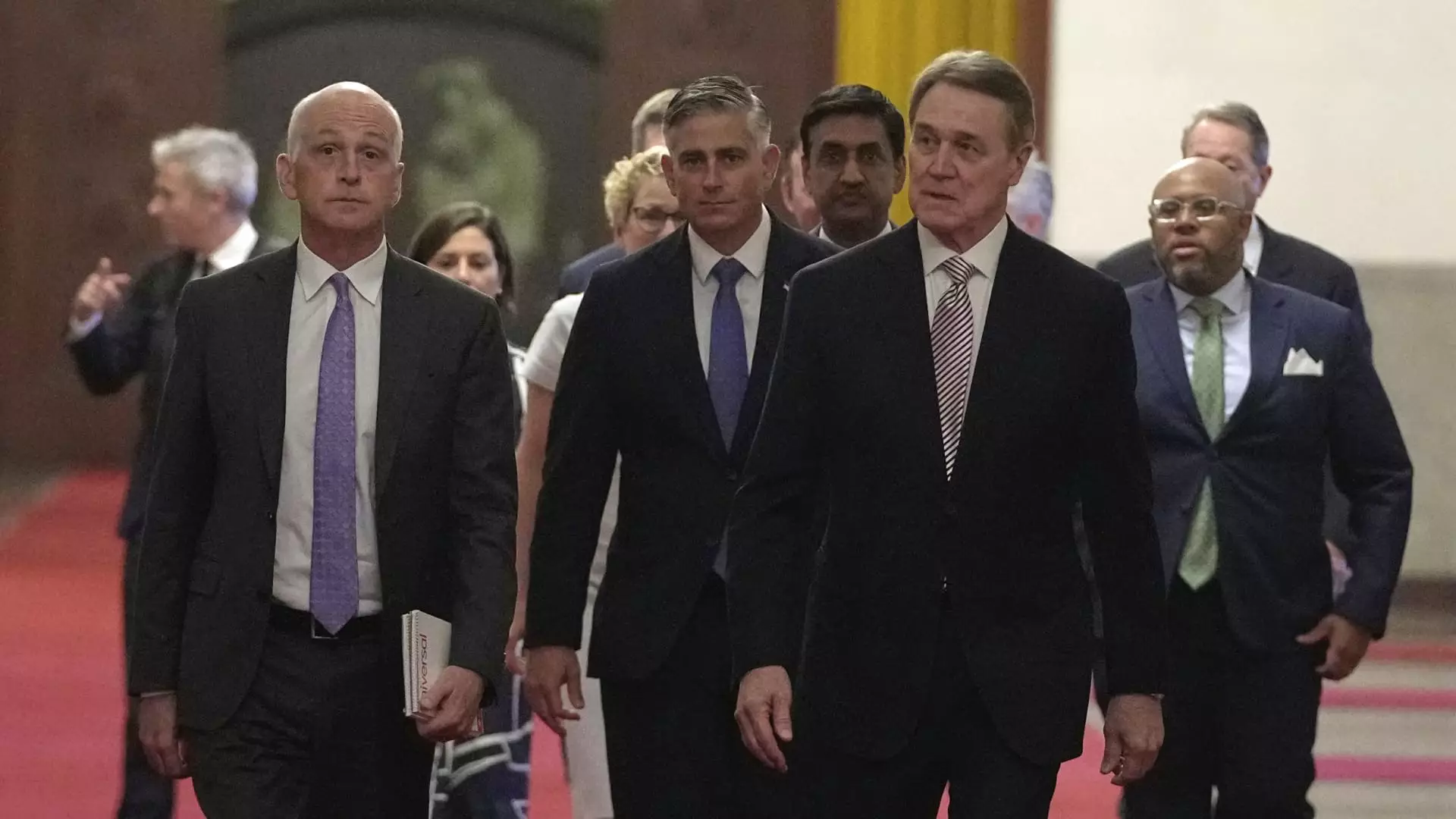Recent efforts to thaw the icy relationship between Washington and Beijing reveal much about the facade of diplomacy overshadowing underlying tensions. The visit by U.S. lawmakers to Beijing, the first since 2019, symbolizes a superficial attempt to “break the ice,” but it obscures the deeper, more persistent issues that threaten global stability. While such gestures may seem promising on the surface, they risk being window dressing rather than substantive progress. The ongoing rivalry over trade, technology, and geopolitical influence underscores a critical question: Are these exchanges genuine efforts to rebuild trust, or are they mere diplomatic theater that sidesteps fundamental disagreements?
The absence of formal congressional visits during the COVID-19 pandemic translated into a dangerous vacuum—one filled with impatience, miscommunication, and escalating rivalries. The trip’s emphasis on “re-engagement” must be scrutinized carefully. It’s not enough to merely facilitate meetings; authentic diplomacy requires acknowledging the profound disparities that underpin U.S.-China relations. Whether dialogues will translate into tangible policy shifts or simply serve as a temporary balm remains to be seen. The delicate dance of diplomacy can easily devolve into symbolic gestures that placate instead of resolve, and that risk prolonging instead of resolving the core issues at stake.
Surface-Level Diplomacy Versus Deep-Seated Realities
The complex layers of the U.S.-China relationship reveal that campaigns to “break the ice” often overlook the realities of mutual suspicion and strategic competition. U.S. actions, like restrictions on semiconductors and restricting TikTok, reflect legitimate concerns about technology transfer and national security, but they also contribute to escalating tensions that inhibit genuine cooperation. Conversely, China’s assertiveness in areas like the South China Sea and Taiwan demonstrates a core commitment to sovereignty, which clashes with US-led efforts to maintain influence in Asia.
The bipartisan delegation’s visit could be misinterpreted as a positive step, but it might also be a strategic move to cast a temporary illusion of diplomacy while avoiding difficult questions. The underlying issue isn’t just about having conversations but about reaching a consensus on managing rivalry responsibly. The question remains: can both nations engage in meaningful dialogue that moves beyond rhetoric and addresses their core grievances? Without addressing the systemic issues of mistrust and strategic discord, such high-profile visits risk becoming grandstanding opportunities rather than catalysts for real change.
Political Posturing or a Path Toward Responsibility?
The U.S. political landscape is rife with posturing. Lawmakers like Adam Smith invoke phrases about “breaking the ice,” but these often serve domestic political narratives rather than genuine diplomatic progress. The focus on Taiwan exemplifies this rhetoric—while bipartisan visits to the island annex the issue as a symbol of support for democracy, they deliberately ignore the broader geopolitical tensions that threaten regional and global security.
This approach raises pressing questions about the balance between pragmatism and idealism in foreign policy. It’s crucial to recognize that engagement must be rooted in mutual responsibility, not just diplomatic steps to appease domestic audiences. A center-leaning liberal perspective argues that a realistic and responsible approach demands honest acknowledgment of disagreements and a firm commitment to diplomacy that prioritizes long-term stability over short-term political gains.
Real progress depends on Washington and Beijing managing their differences with strategic patience, transparency, and a willingness to engage in difficult conversations. The danger lies in relying on superficial gestures that pacify fear or opposition, while neglecting the fundamental need for mutual understanding and respect for sovereignty. Only then can the two superpowers hope to navigate the treacherous waters of rivalry and cooperation—an outcome that is vital for maintaining global peace and stability.


Leave a Reply